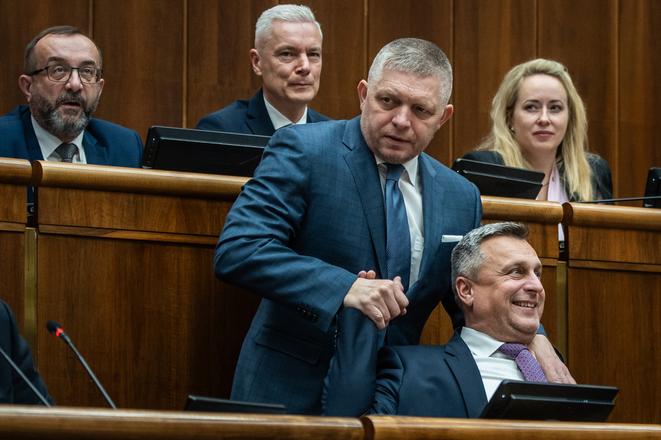Prime Minister Robert Fico’s coalition government has agreed to cancel the public holiday on November 17 – the Day of the Struggle for Freedom and Democracy – turning it into a regular working day starting this year. Although the holiday will retain its symbolic designation, Slovaks will no longer have the day off – at least not in the coming years.
The decision is part of a broader fiscal strategy. It follows efforts to revise a contentious financial transaction tax introduced in late April, which sparked public and business backlash almost immediately.
"Write it down and remember it. At this moment, the transaction tax is irreversible, because it brings in a volume of money to the state budget without which we cannot imagine consolidating public finances," Fico declared at the time. Modeled on a similar tax in Hungary, the Slovak version was expected to bring in around €700 million annually.
However, strong opposition from businesses, entrepreneurs, and employer associations forced the ruling parties – Smer, Hlas, and SNS – to support a partial rollback. To make up for the expected revenue shortfall, the government decided to reclassify November 17, a national holiday commemorating the fall of communism in 1989, as a working day. Parliament had declared it a national holiday in 2001.
According to analysts, scrapping a single public holiday could generate roughly €155 million through increased payroll and corporate tax revenues.
Freedom day cut
The move is symbolically charged. Fico, a former member of the Communist Party of Czechoslovakia, has previously shown indifference toward November 17. “Looking back, I don’t see any fundamental turning point in my life in 1989,” he said in a 2000 interview with Domino Fórum magazine.
Now, Fico justifies the change by claiming Slovakia has “one of the highest numbers of public holidays in the world” – 14 in total – and argues that reducing the number is a reasonable austerity measure. He has even hinted that another holiday could be dropped as early as 2026, though he has not specified which one.
His rhetoric aligns with the positions of Slovakia’s major employer associations, which have long advocated reducing public holidays to increase productivity and lower labour costs. A recent report identified up to €6.5 billion in potential savings from various austerity measures, including holiday cancellations.
Critics, however, accuse the government of deliberately targeting a holiday with deep democratic significance. November 17 marks the start of the Velvet Revolution in 1989, when Czechoslovaks began mass protests against the communist regime. “This holiday, which was a day of rest, will be abolished. They could have picked any other date. They chose this one because it’s symbolic,” said opposition MP Július Jakab of Slovensko.
Fico concedes
The government’s partial retreat on the transaction tax came after heavy lobbying by coalition partners, particularly SNS leader Andrej Danko and Hlas chair Matúš Šutaj Eštok. Danko introduced a parliamentary amendment to exempt sole traders and small businesses (with annual turnover below €100,000) from the tax. This proposal has already passed its first reading with coalition and opposition backing.
Finance Minister Ladislav Kamenický, a member of Smer, initially defended the tax but now appears to be yielding under political pressure. “If someone claims that part of the transaction tax must be scrapped, and the state budget will lose €200 or €300 million, then let’s offer an alternative – we’ll abolish one public and one religious holiday,” Fico said on Sunday.
Still, the timeline for changes remains uncertain. Final legislative amendments are not expected before the autumn, and exemptions may not take effect until early 2026.
Meanwhile, public opposition to the tax is mounting. According to a recent Ipsos survey, three-quarters of Slovaks support its repeal. Businesses report a rise in cash transactions to avoid the charge – a trend that risks reducing VAT and income tax collection. A poll by the Business Alliance of Slovakia in early May found that 97 percent of entrepreneurs oppose the tax, and two-thirds believe it will drive up prices.
Constitutional experts note that not all holidays are equally vulnerable. Religious holidays, such as the Feast of Our Lady of Sorrows on September 15, are protected by international treaties between Slovakia and the Vatican. Civil holidays like November 17, however, can be repealed by parliamentary vote.
This is not the first time Fico’s government has scrapped a holiday. Constitution Day, observed on September 1, was removed from the calendar in late 2023 – although the change had no practical effect, as the date fell on a Sunday in 2024.


